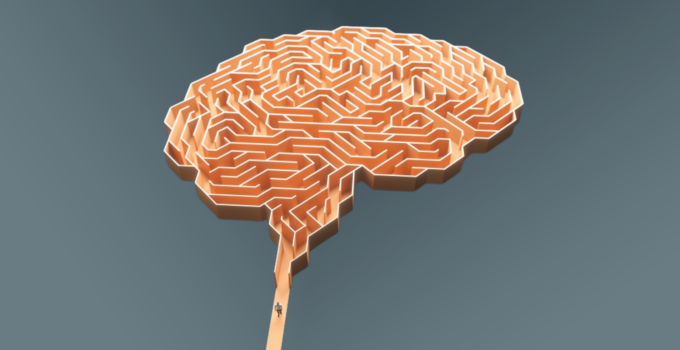In the modern age, where we’re bombarded with vast amounts of information every day, the ability to learn rapidly and effectively is more valuable than ever.
Remember the days when we relied on hefty encyclopedias for information? Today, online tools and platforms, such as Gizmo, have revolutionized our access to knowledge, making learning more interactive and personalized.
But amidst this technological dazzle, it’s essential to revisit and understand the core principles that remain timeless.
Whether you’re a student, a professional, or a lifelong learner, these strategies will help you achieve rapid comprehension and improve recall. Dive in and discover how to harness your brain’s potential!
Page Contents
Brain’s Capacity
The Limits of Human Memory
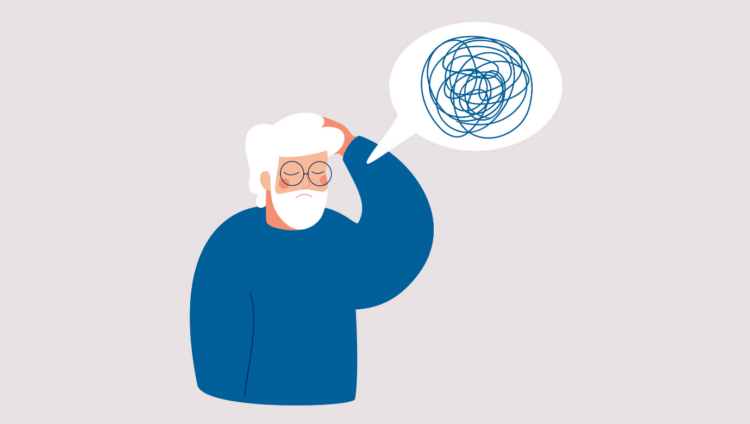
Source: eslbrains.com
Humans have an astonishing ability to store and retrieve memories. While it’s commonly believed that the human brain can store about as much information as a 2.5 petabyte hard drive, this is a simplistic comparison.
Our brains don’t store information like computers. Instead, memories are formed through complex networks of neurons.
Neuroplasticity and Learning
The brain’s adaptability, known as neuroplasticity, allows it to rewire and change with experience. When we learn something new or practice a skill repeatedly, our neurons form new connections.
This adaptability is the foundation for strategies that improve comprehension and recall.
Effective Reading Techniques
The SQ3R Method
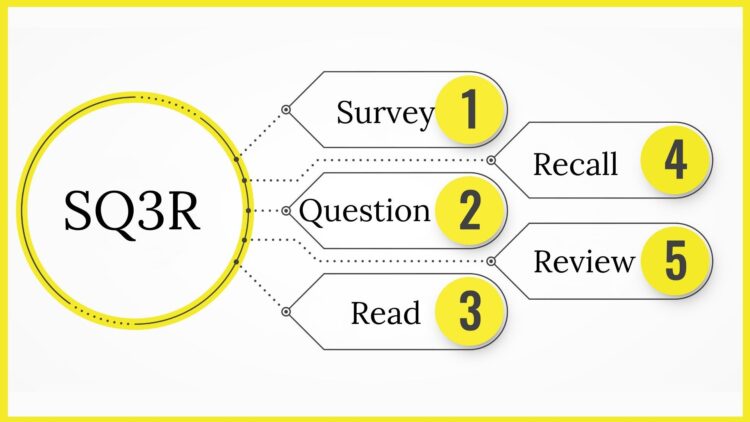
Source: marketing91.com
SQ3R stands for Survey, Question, Read, Recite, and Review. Initially, skim your material to get an overview. Then, form questions based on your survey. As you read, seek answers to these questions. Recite the main points to solidify your understanding. Finally, review the material to enhance recall.
Speed Reading
While speed reading has its critics, with practice, many can increase their reading speed without compromising comprehension. Key techniques include reducing subvocalization, using a pointer, and grouping words.
Visual Learning Strategies
Mind Mapping
A mind map is a visual representation of information, branching out in all directions from a central concept. It mirrors the brain’s natural way of connecting ideas and can dramatically improve comprehension and memory.
The Use of Graphics and Charts
Visual aids like charts, diagrams, and infographics can simplify complex ideas. They not only enhance comprehension but also make recall easier since our brain processes visual information faster than text.
Active Engagement with Material
Teach to Learn

Source: vecteezy.com
One of the most effective ways to understand a topic is to teach it. When you explain concepts to someone else, you’re forced to clarify your thoughts, identify gaps in your understanding, and consolidate your knowledge.
Discussion Groups
Engaging in group discussions can expose you to varied perspectives, helping to reinforce your understanding. Moreover, explaining your viewpoint can further enhance your comprehension and recall.
Repetition and Practice
The Spacing Effect
Studies show that spaced repetition – studying material several times spaced out over a longer time span – improves long-term retention. Using tools like flashcards with spaced repetition algorithms can be particularly effective.
Active Recall
Instead of passively reviewing your notes, test yourself. Active recall, where you force your brain to retrieve a piece of information, strengthens your neural pathways, making future retrieval easier.
Embrace Technology!
Use Digital Tools for Learning
From apps that harness spaced repetition to platforms that offer interactive learning experiences, technology can be a boon for those seeking to improve their comprehension and recall.
Virtual Reality and Immersive Learning
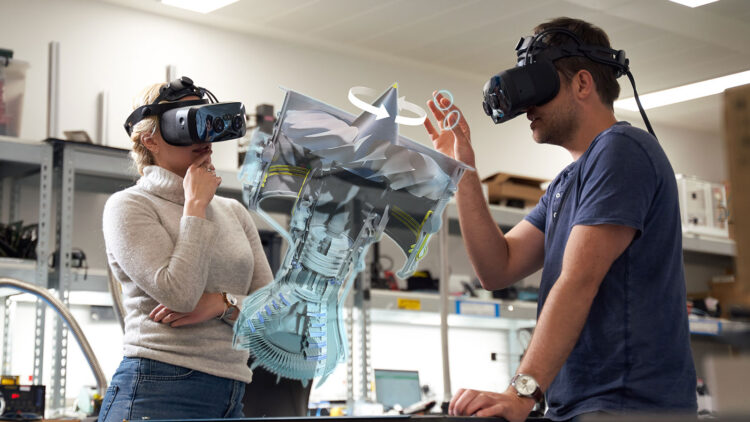
Source: ultraleap.com
Virtual Reality (VR) offers an immersive learning experience, creating vivid memories that are easier to recall. As VR becomes more accessible, its role in education and professional training will only grow.
By understanding the intricacies of the brain and harnessing proven techniques, we can significantly enhance our comprehension and recall abilities. Whatever your goals, these strategies can provide a roadmap to cognitive excellence.
Lifestyle Factors that Influence our Abilities
Sleep and Memory
Sleep isn’t just for rest – it’s crucial for memory consolidation. REM sleep, in particular, has been linked to improved recall of recently learned material. Ensuring a regular sleep pattern can therefore significantly enhance memory.
Nutrition and Cognitive Function
Certain nutrients can boost cognitive function. Omega-3 fatty acids, antioxidants, and vitamin E, for example, have been linked to better brain health. A balanced diet can indirectly aid in comprehension and recall.
The Power of Mnemonics
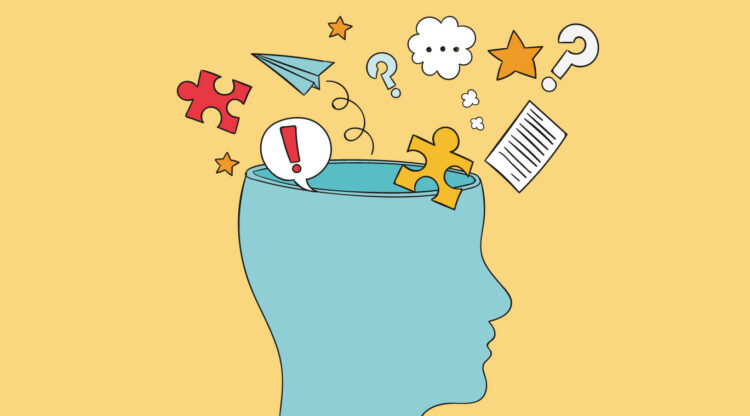
Source: classplusapp.com
Association Techniques
Mnemonic devices, like rhymes or acronyms, link information to familiar concepts, simplifying complex data. The more vivid and unusual the association, the easier it is to recall.
The Memory Palace
Also known as the method of loci, this ancient technique involves visualizing a familiar place, like your home, and placing items or concepts you want to remember at specific locations. To recall, simply ‘walk’ through your palace.
Focus!
Meditation for Improved Concentration
Meditation isn’t just for relaxation. Regular practice can enhance concentration and attention span. When you’re more focused, comprehension and recall improve.
Eliminate Distractions!
In our tech-saturated world, distractions abound. Removing interruptions, turning off notifications, and designating specific study or work times can drastically improve your ability to comprehend and retain information.
The Role of Emotions
Emotionally charged events are easier to recall. While it’s impractical to make every study session emotionally charged, maintaining a positive, relaxed mindset can facilitate better memory formation.
Stress and Cognitive Decline
Chronic stress, conversely, can impede cognitive function and memory. Recognizing stressors and employing strategies like deep breathing, breaks, or physical activity can protect and even enhance your brain’s capacities.
The Bottom Line
In conclusion, learning efficiently doesn’t require genius intellect—just the right techniques and mindset. Implement these strategies and watch as your comprehension and memory soar.

